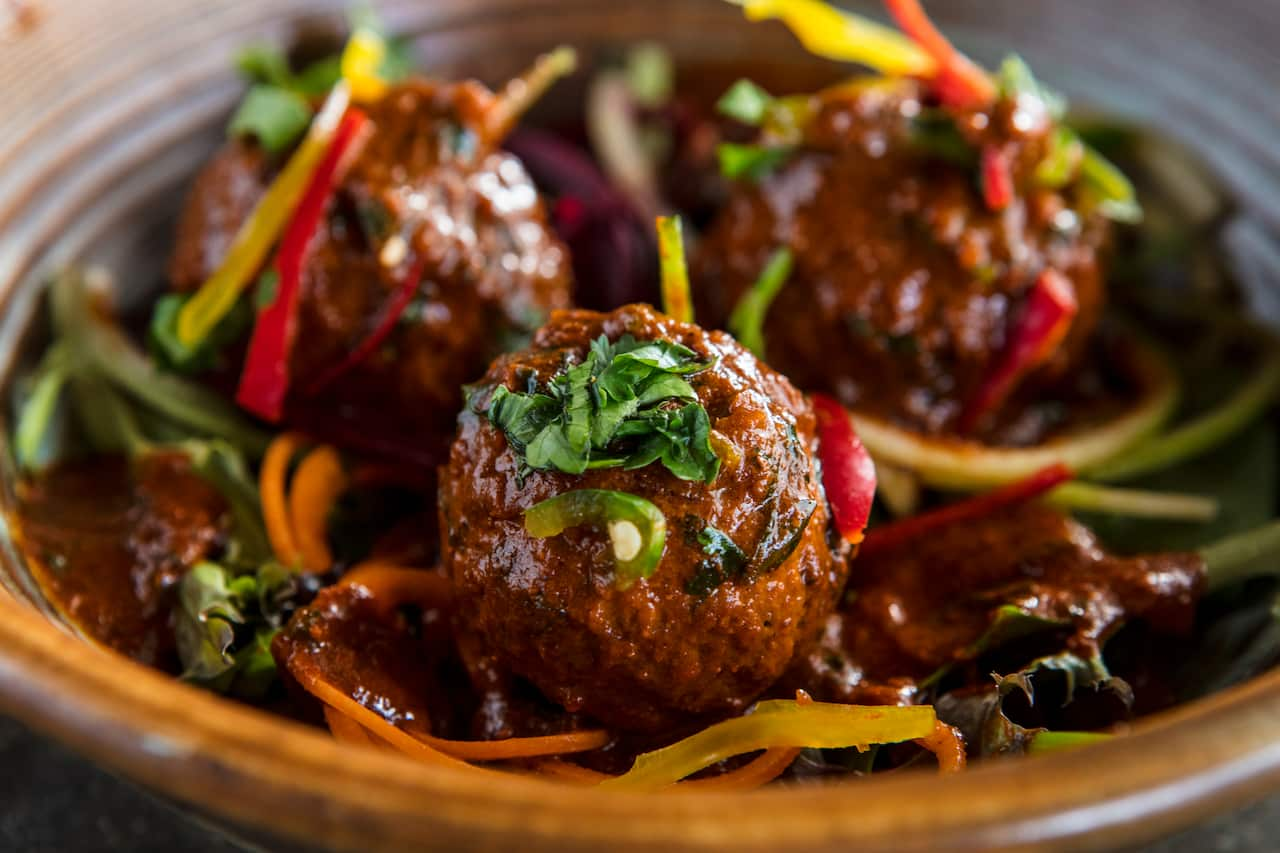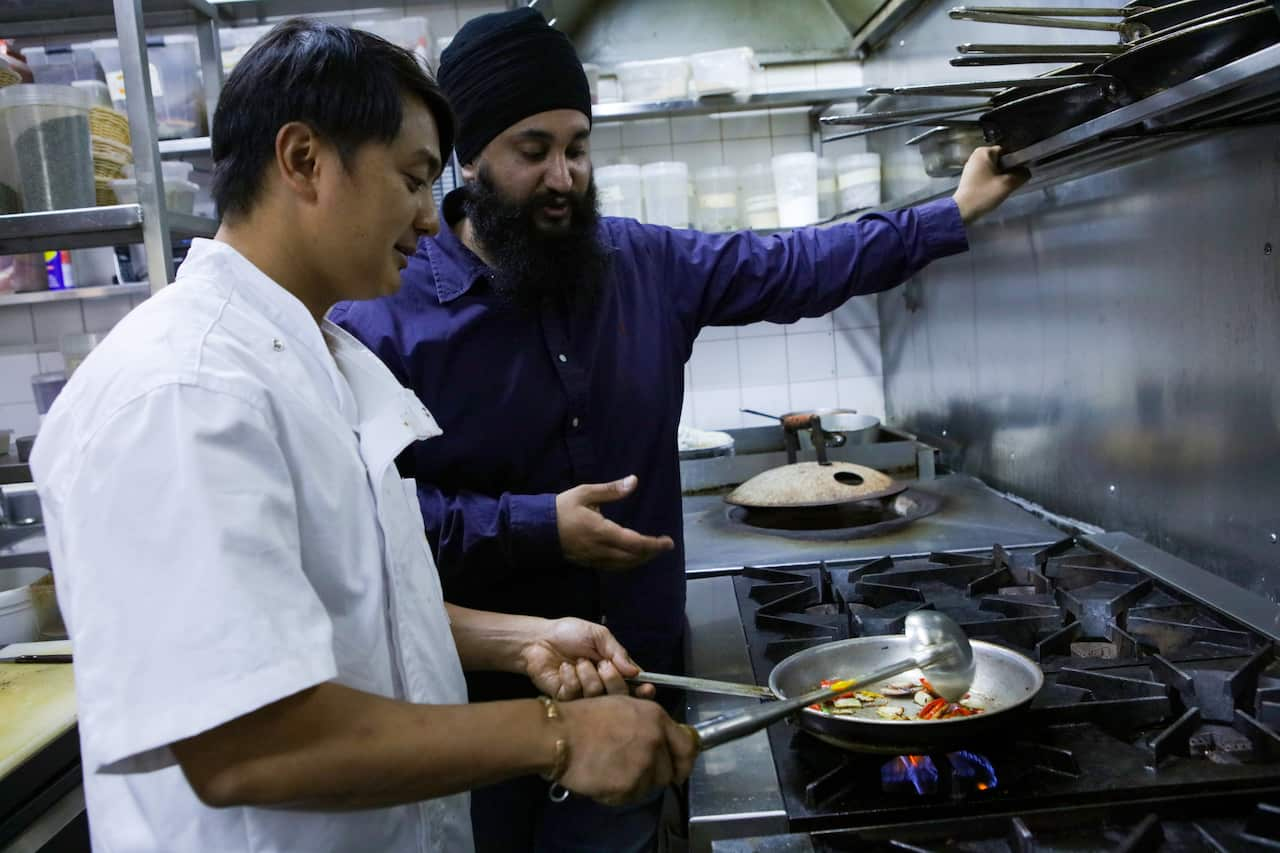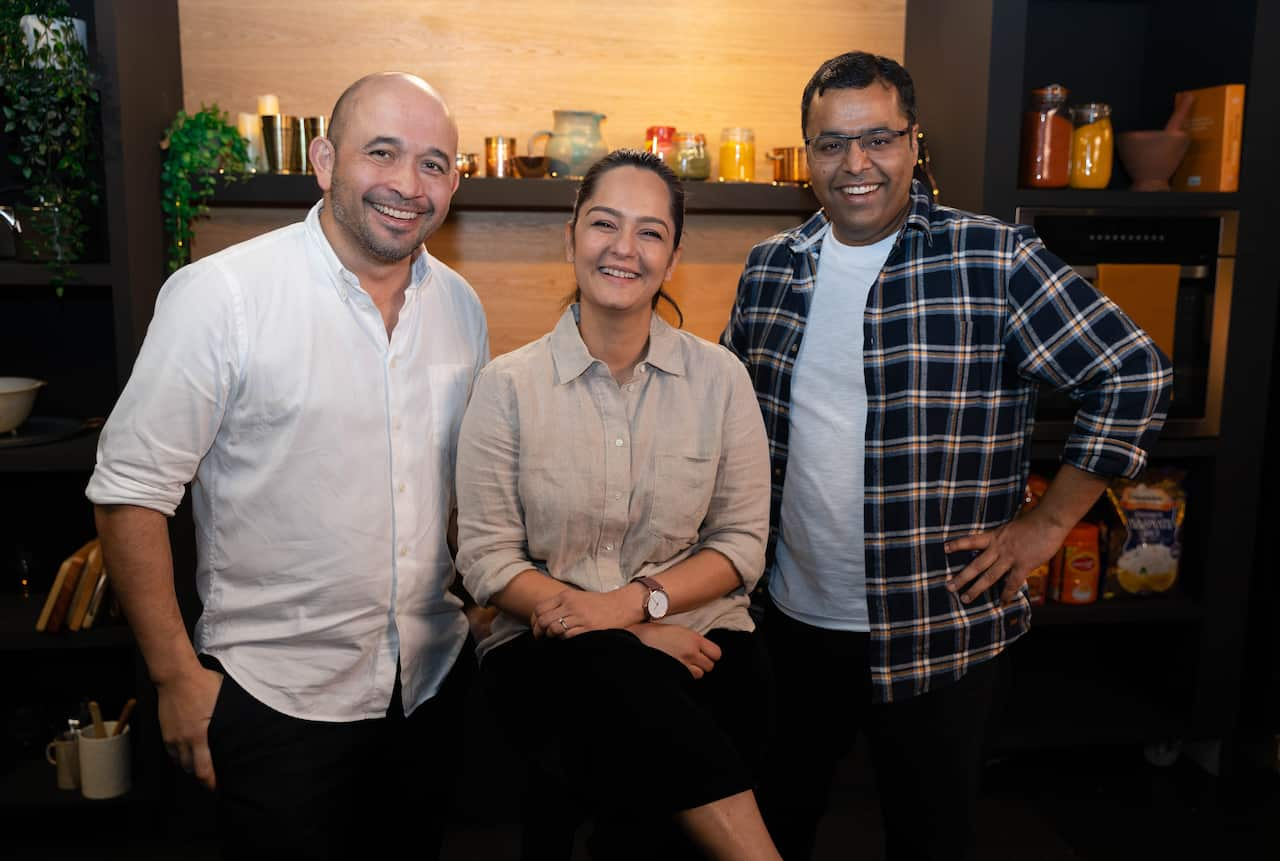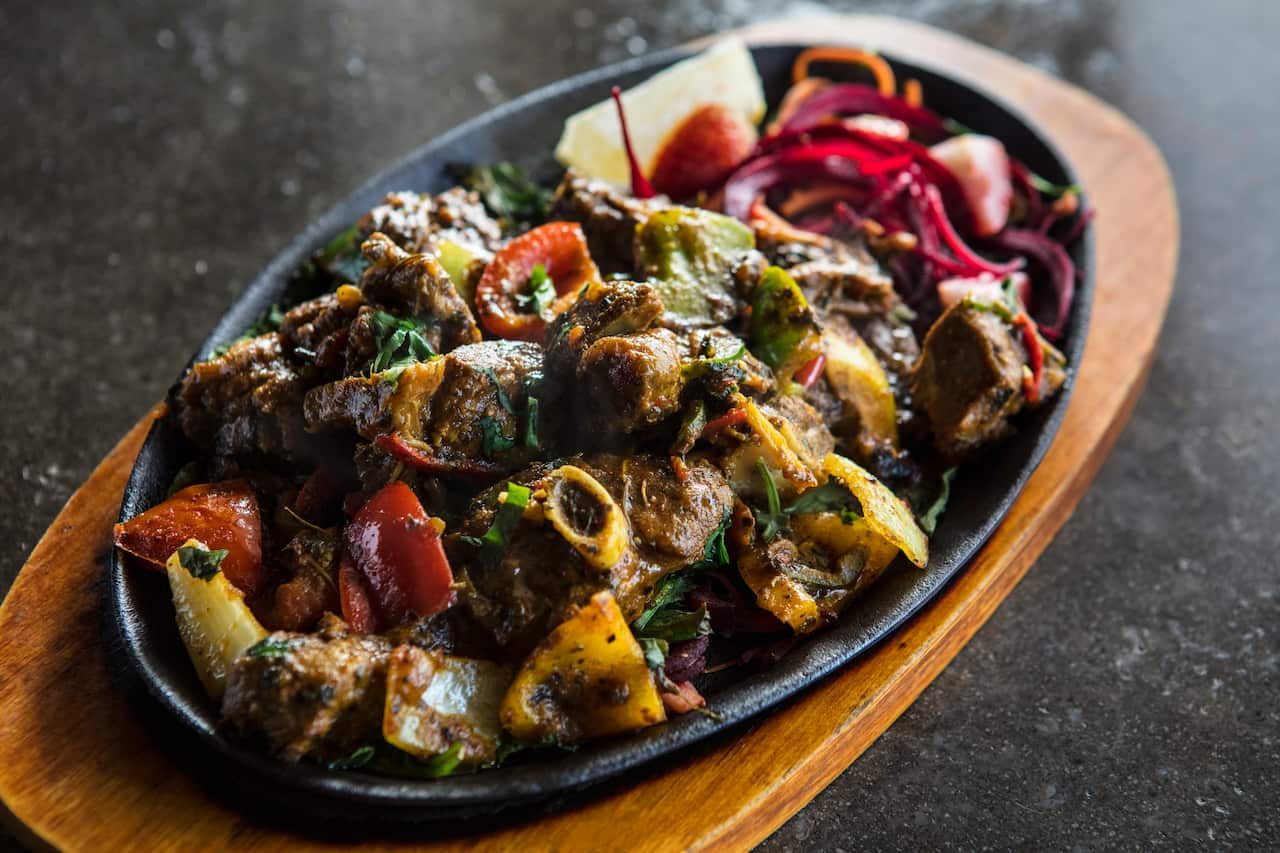Highlights
- Wazwan is a multi-course meat-heavy meal in Kashmiri cuisine primarily served during Kashmiri weddings and festivals.
- Due to the expertise required to prepare Wazwan, it is difficult to find outside India and Pakistan.
- Sydney resident Inderpreet Singh's love for Kashmiri food led him to open WaazWaan, a restaurant in the city’s North Shore.
At Kashmiri weddings, it is a tradition for the hosts to serve their guests a meat-laden feast that can take hours -- to not only prepare but also partake.
Known as Wazwan, this ceremonial spread derives its name from the Kashmiri words ‘waza’, meaning ‘cook/chef’ and ‘wan’, meaning ‘shop’. Comprising 14 to 36 dishes, this meal is typically served on a copper plate called traemi, from which a small group of people eats together using their hands.
This multi-course meat-heavy array of dishes is common to both sides of the Line of Control that splits the disputed region of Jammu and Kashmir between India and Pakistan and has remained the epicentre of conflict between the two South Asian neighbours since 1947.
Sandeep Pandit, the host of SBS Food's new TV show India Unplated, and a former MasterChef Australia contestant, is passionate about spreading awareness of authentic Subcontinental food and the stories behind the dishes.
Mr Pandit tells SBS Urdu that this meal of Kashmiri Muslim origin is “one of the two gems of Kashmiri cooking, along with Kashmiri Pandit (Hindu) cuisine”.
“Wazwan can be traced back to the chefs of Samarkand who came to Kashmir and brought with them the culinary traditions of Central Asia and mixed them with the rich spice traditions of Kashmir,” he says.

“The beauty of Wazwan lies in its history and the way a single animal carcass is used to make multiple dishes. Goat or lamb meat (mutton) is the mainstay of Wazwan and there’s a dish prepared from practically every part of the animal.
“The techniques of Wazwan have been refined for hundreds of years and the meals are always cooked under the careful supervision of the master chef, called Yousta Waza, with up to 10 apprentice chefs,” he elaborates.
Due to the expertise required to prepare Wazwan, it makes it difficult to find outside India and Pakistan. This applies to Australia too.

‘A labour of love’
Sydney resident Inderpreet Singh was born in Punjab, in northern India. But his love for Kashmiri food led him and his family to open WaazWaan, a restaurant in the city’s North Shore.
For WaazWaan’s 36-course banquet, many of the dishes must be prepared overnight.
For a dish like goshtaba, mutton is pounded with a wooden hammer and the meatballs are simmered for hours in a spicy yoghurt gravy. Using freshly slaughtered meat is key to achieving the spongy texture which is the dish’s trademark.
Mr Singh tells SBS Urdu that Kashmiri cuisine is underrepresented in Australia.
Many Australians know their food, but may be unaware that Kashmiri has its own cuisine and it’s one of the most luxurious in the Subcontinent.
“Even if you ask someone from Lahore or Delhi what goshtaba or rista [a saffron-flavoured dish of mutton meatballs] are, they might not be able to answer your question,” Mr Singh adds.

His family has been running North Indian cuisine restaurants in Australia for decades but they started WaazWaan in 2018 in the hope of serving “something different”.
He says that while the banquet pulls together influences from Persian, Afghani, Central Asian and Turkish cooking, Australian produce also plays a big role at this restaurant.
“In Australia, it is easy to have the meat of your choice, so we serve dishes which are an important part of Wazwan like goshtaba and rista amongst others. We know how to match the flavours to keep the order of the meal going,” he says.

‘A feast for all’
Traditionally, Wazwan is served to small groups of people seated on the floor around a traemi after a ritual washing of the hands.
But at WaazWaan, the experience has been tailored to a restaurant setting, with the addition of cutlery which is traditionally not a part of Kashmiri table etiquette. Diners can also order many of the dishes as a la carte.
For Mr Pandit, growing up as a Kashmiri Pandit in Srinagar, the capital of Indian-Administered Kashmir, food was often associated with large family gatherings.
He adds that Wazwan is equally loved by people of all faiths in Kashmir. “It’s a feast for all,” he says, tempered with emotion about a culinary spread that he is geographically distant from but emotionally attached to.
“From a spice profile perspective, Wazwan, just like Kashmiri Pandit cuisine, is a flavourful journey of aniseed and earthy notes from dry fennel and dry ginger with smoky bold notes from black cardamom; fruity, floral notes of green cardamom and the mild heat and colour of the Kashmiri red chilies.
“The food is usually slow-cooked and involves masterful techniques for even the prep,” remarks Mr Pandit.
Personally, I reckon that Wazwan is not just a cuisine, but a refined culinary school in itself
As Wazwan is more akin to a community ceremony than a meal, Mr Singh says COVID-19 has hit his restaurant hard.
“The entire hospitality industry has been suffering due to the lockdown restrictions and [there have been] no tourists, but I’m optimistic diners will return,” he says with optimism.
- Listen to Urdu Podcasts on Spotify Podcast, Apple Podcasts, Google Podcast, Stitcher Podcast
- Learn How to Bookmark SBS URDU’s website or make it your home page.
- SBS Urdu is broadcast every Wednesday and Sunday at 6 PM (AEST).
- How to Listen
- COVID 19 Latest Updates in Urdu
- Install “SBS Radio” mobile app
